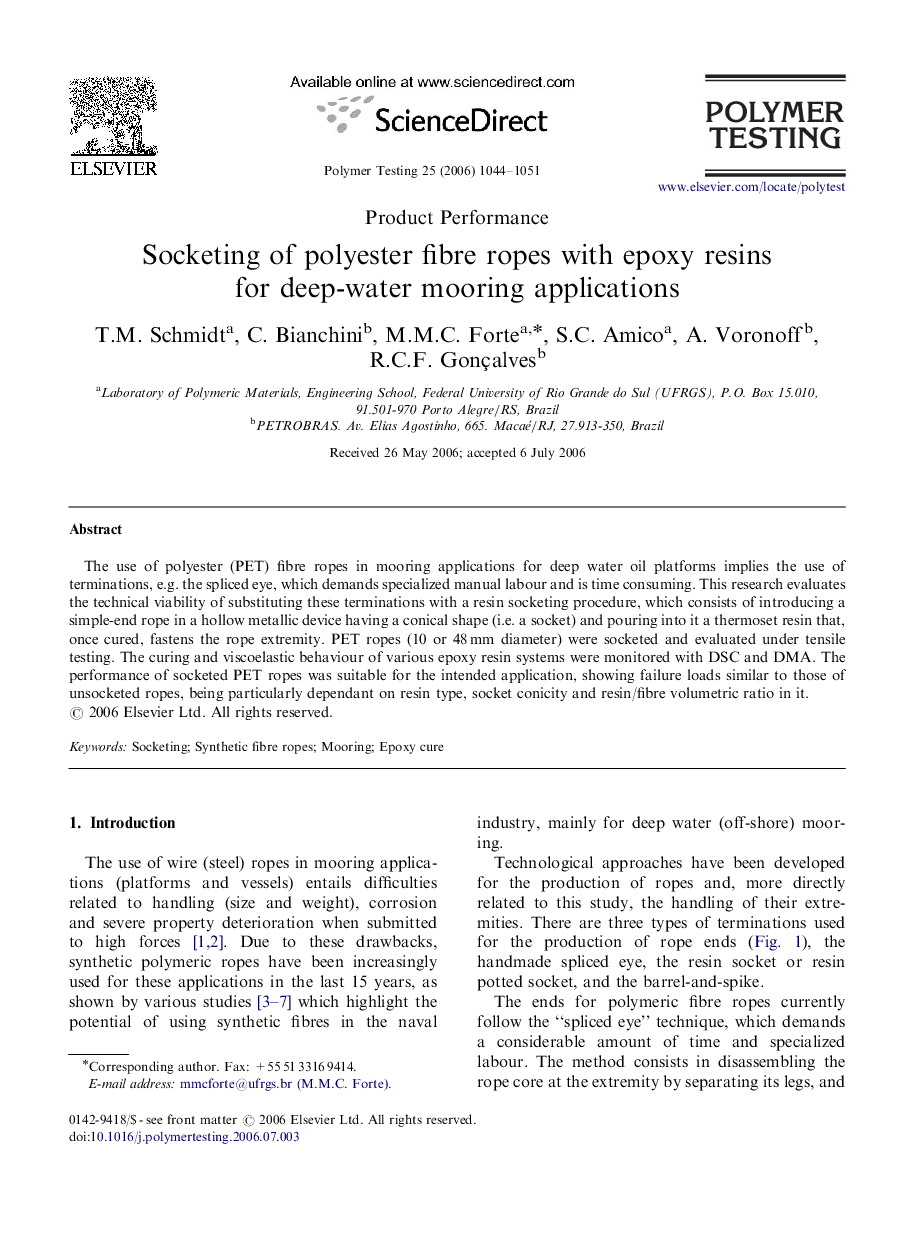| Article ID | Journal | Published Year | Pages | File Type |
|---|---|---|---|---|
| 5207624 | Polymer Testing | 2006 | 8 Pages |
Abstract
The use of polyester (PET) fibre ropes in mooring applications for deep water oil platforms implies the use of terminations, e.g. the spliced eye, which demands specialized manual labour and is time consuming. This research evaluates the technical viability of substituting these terminations with a resin socketing procedure, which consists of introducing a simple-end rope in a hollow metallic device having a conical shape (i.e. a socket) and pouring into it a thermoset resin that, once cured, fastens the rope extremity. PET ropes (10 or 48Â mm diameter) were socketed and evaluated under tensile testing. The curing and viscoelastic behaviour of various epoxy resin systems were monitored with DSC and DMA. The performance of socketed PET ropes was suitable for the intended application, showing failure loads similar to those of unsocketed ropes, being particularly dependant on resin type, socket conicity and resin/fibre volumetric ratio in it.
Keywords
Related Topics
Physical Sciences and Engineering
Chemistry
Organic Chemistry
Authors
T.M. Schmidt, C. Bianchini, M.M.C. Forte, S.C. Amico, A. Voronoff, R.C.F. Gonçalves,
